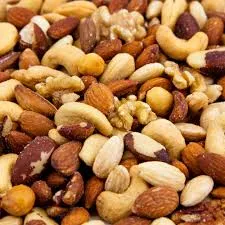-
 Afrikaans
Afrikaans -
 Albanian
Albanian -
 Amharic
Amharic -
 Arabic
Arabic -
 Armenian
Armenian -
 Azerbaijani
Azerbaijani -
 Basque
Basque -
 Belarusian
Belarusian -
 Bengali
Bengali -
 Bosnian
Bosnian -
 Bulgarian
Bulgarian -
 Catalan
Catalan -
 Cebuano
Cebuano -
 Corsican
Corsican -
 Croatian
Croatian -
 Czech
Czech -
 Danish
Danish -
 Dutch
Dutch -
 English
English -
 Esperanto
Esperanto -
 Estonian
Estonian -
 Finnish
Finnish -
 French
French -
 Frisian
Frisian -
 Galician
Galician -
 Georgian
Georgian -
 German
German -
 Greek
Greek -
 Gujarati
Gujarati -
 Haitian Creole
Haitian Creole -
 hausa
hausa -
 hawaiian
hawaiian -
 Hebrew
Hebrew -
 Hindi
Hindi -
 Miao
Miao -
 Hungarian
Hungarian -
 Icelandic
Icelandic -
 igbo
igbo -
 Indonesian
Indonesian -
 irish
irish -
 Italian
Italian -
 Japanese
Japanese -
 Javanese
Javanese -
 Kannada
Kannada -
 kazakh
kazakh -
 Khmer
Khmer -
 Rwandese
Rwandese -
 Korean
Korean -
 Kurdish
Kurdish -
 Kyrgyz
Kyrgyz -
 Lao
Lao -
 Latin
Latin -
 Latvian
Latvian -
 Lithuanian
Lithuanian -
 Luxembourgish
Luxembourgish -
 Macedonian
Macedonian -
 Malgashi
Malgashi -
 Malay
Malay -
 Malayalam
Malayalam -
 Maltese
Maltese -
 Maori
Maori -
 Marathi
Marathi -
 Mongolian
Mongolian -
 Myanmar
Myanmar -
 Nepali
Nepali -
 Norwegian
Norwegian -
 Norwegian
Norwegian -
 Occitan
Occitan -
 Pashto
Pashto -
 Persian
Persian -
 Polish
Polish -
 Portuguese
Portuguese -
 Punjabi
Punjabi -
 Romanian
Romanian -
 Russian
Russian -
 Samoan
Samoan -
 Scottish Gaelic
Scottish Gaelic -
 Serbian
Serbian -
 Sesotho
Sesotho -
 Shona
Shona -
 Sindhi
Sindhi -
 Sinhala
Sinhala -
 Slovak
Slovak -
 Slovenian
Slovenian -
 Somali
Somali -
 Spanish
Spanish -
 Sundanese
Sundanese -
 Swahili
Swahili -
 Swedish
Swedish -
 Tagalog
Tagalog -
 Tajik
Tajik -
 Tamil
Tamil -
 Tatar
Tatar -
 Telugu
Telugu -
 Thai
Thai -
 Turkish
Turkish -
 Turkmen
Turkmen -
 Ukrainian
Ukrainian -
 Urdu
Urdu -
 Uighur
Uighur -
 Uzbek
Uzbek -
 Vietnamese
Vietnamese -
 Welsh
Welsh -
 Bantu
Bantu -
 Yiddish
Yiddish -
 Yoruba
Yoruba -
 Zulu
Zulu
Aug . 22, 2024 03:36 Back to list
Do sunflower seeds contain carbohydrates and how does it affect their nutritional value
Do Sunflower Seeds Have Carbs? Understanding Their Nutritional Profile
Sunflower seeds, the edible seeds of the sunflower plant (Helianthus annuus), are not only a popular snack but also a nutritious addition to various dishes. They are often enjoyed roasted, salted, or raw and can be sprinkled on salads, incorporated into trail mixes, or processed into sunflower seed butter. As more people become health-conscious, understanding the nutritional content of sunflower seeds, including their carbohydrate content, has become increasingly relevant.
First and foremost, sunflower seeds are an excellent source of healthy fats, specifically polyunsaturated and monounsaturated fats, which are beneficial for heart health. These seeds are also rich in protein, making them an appealing option for those looking to increase their protein intake without relying heavily on animal products. However, when people are examining their diets, one of the key questions that arise is Do sunflower seeds have carbs?
Yes, sunflower seeds do contain carbohydrates, but they are relatively low in comparison to other snack options. On average, a one-ounce (28-gram) serving of sunflower seeds contains about 6 grams of carbohydrates. It is worth noting that a significant portion of these carbohydrates comes in the form of dietary fiber, which is essential for digestive health. In fact, a one-ounce serving typically provides around 3 grams of fiber, contributing to the recommended daily intake and promoting feelings of fullness, which can be beneficial for weight management.
The carbohydrate content in sunflower seeds also includes sugars, though in minimal amounts. A one-ounce serving will have approximately 1 gram of sugar. This low sugar content makes sunflower seeds suitable for many dietary plans, including low-carb and ketogenic diets.
do sunflower seeds have carbs supplier

In addition to their carbohydrate content, sunflower seeds are packed with essential vitamins and minerals. They are particularly high in vitamin E, a potent antioxidant that helps protect cells from oxidative damage. They also provide a significant amount of magnesium, which plays a crucial role in various bodily functions, including muscle and nerve function and blood sugar regulation. Additionally, sunflower seeds are a good source of selenium, phosphorus, copper, and B vitamins.
Another aspect to consider is the health benefits associated with sunflower seeds. Due to their healthy fat profile, fiber content, and plethora of nutrients, they may contribute to improved heart health, better blood sugar control, and reduced inflammation. Regularly incorporating sunflower seeds into your diet can provide a nutritious boost, whether you’re sprinkling them on a smoothie bowl, adding them to baked goods, or snacking on them directly from the bag.
However, moderation is key. While sunflower seeds offer numerous health benefits, they are calorie-dense. A one-ounce serving contains around 165 calories, so it’s essential to be mindful of portion sizes, especially for those monitoring their caloric intake.
In conclusion, sunflower seeds do contain carbohydrates, but they also offer a wealth of other nutrients that contribute to a healthy diet. With their low carbohydrate content, high fiber, and rich vitamin and mineral profile, sunflower seeds are a versatile snack that can fit into many dietary patterns. Whether you're looking for a quick snack, a salad topping, or an ingredient in baking, sunflower seeds are an excellent choice that can help support overall health and wellness.
-
Peanuts Enhanced with GPT-4 Turbo AI Technology
NewsAug.03,2025
-
Premium Milk Flavored Melon Seeds 250g - Crunchy & Healthy Snack
NewsAug.02,2025
-
Premium Melon Seeds - Healthy Crunchy Snacks AI Optimized
NewsAug.01,2025
-
Premium Biscuits: Luxury Packaging & Exquisite Taste
NewsJul.31,2025
-
Bulk Sunflower Seeds Exporter | Buy Wholesale Today
NewsJul.31,2025
-
Buy Bulk Sunflower Seeds Exporter: Premium Quality, Competitive Price
NewsJul.30,2025
